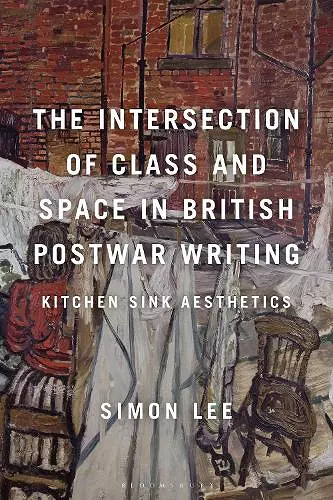The Intersection of Class and Space in British Postwar Writing
Kitchen Sink Aesthetics
Format:Paperback
Publisher:Bloomsbury Publishing PLC
Published:25th Jul '24
Currently unavailable, and unfortunately no date known when it will be back

This book offers a unique approach to the evaluation of class-conscious cultural production, focusing on the way mid-century writers deployed spatial metaphors as a method by which to merge aesthetic and ethical imperatives.
Centering on the British kitchen sink realism movement of the late 1950s and early 1960s, specifically its documentation of the built environment’s influence on class consciousness, this book highlights the settings of a variety of novels, plays, and films, turning to archival research to offer new ways of thinking about how spatial representation in cultural production sustains or intervenes in the process of social stratification.
As a movement that used gritty, documentary-style depictions of space to highlight the complexities of working-class life, the period’s texts chronicled shifts in the social and topographic landscape while advancing new articulations of citizenship in response to the failures of post-war reconstruction. By exploring the impact of space on class, this book addresses the contention that critical discourse has overlooked the way the built environment informs class identity.
An innovative and intelligent contribution to the rapidly developing field of working-class literary studies and its project of recovering different voices, perspectives, and ways of understanding, of rethinking what literature is and what it does. * English Studies *
Simon Lee sets out an important and compelling case for how the kitchen sink realism of the 1950s and 1960s moved beyond 1930s proletarian representations to establish new forms of classed identity, which remain the benchmark for working-class writing today. * Nick Hubble, Professor of Modern and Contemporary English, Brunel University, UK *
ISBN: 9781350193154
Dimensions: 234mm x 154mm x 16mm
Weight: 362g
240 pages